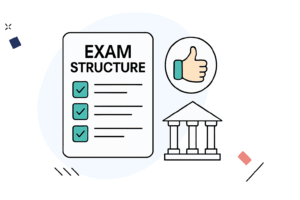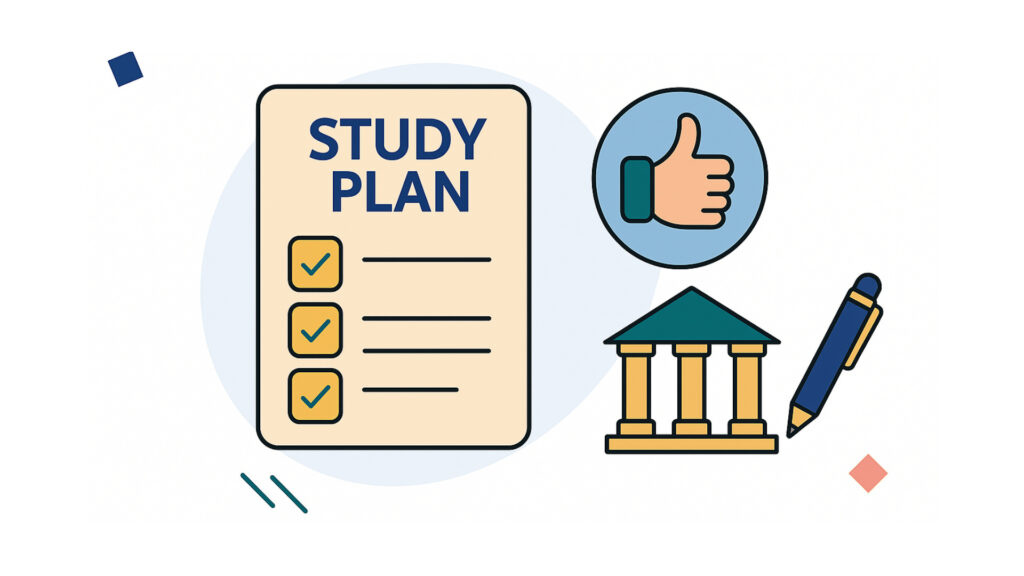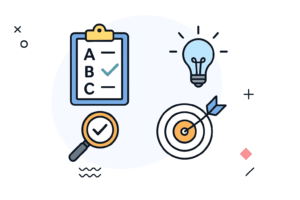Are you preparing for the Judicial Service Exam? If yes, you already know it’s not just another exam, it’s a challenging journey that demands focus, strategy, and persistence. But don’t worry, Edzorb Law got your back! This guide will break down everything you need to know about judicial service exam preparation in a simple, clear, and effective way.
From understanding the exam structure to mastering your study routine and boosting your writing skills, this plan will help you stay on track, stay motivated, and succeed.
Let’s dive right in!
Where to Begin: Understanding the Exam Structure

Before you even open a book, it’s crucial to understand how theJudicial Service Examination is structured. While each state’s exam pattern may vary slightly, the general format remains consistent:
- Preliminary Exam – Objective type questions
- Mains Exam – Descriptive, written answers
- Interview – Viva-voce (oral exam)
Edzorb Tip: Start by checking the syllabus, weightage, and past cut-off marks for the state you’re targeting. This will help you spot high-priority areas and tailor your strategy accordingly.
Create a Subject-Wise Timeline
A solid timeline is the backbone of effective preparation. Break down your syllabus into manageable chunks:
Core Subjects (High Priority)
These subjects are the foundation of the judiciary exam and should be tackled first:
| Old Law | Replaced By |
|---|---|
| Indian Penal Code, 1860 (IPC) | Bharatiya Nyaya Sanhita, 2023 (BNS) |
| Criminal Procedure Code, 1973 (CrPC) | Bharatiya Nagarik Suraksha Sanhita, 2023 (BNSS) |
| Indian Evidence Act, 1872 | Bharatiya Sakshya Adhiniyam, 2023 (BSA) |
Minor Subjects (Medium Priority)
Once the core subjects are covered, shift your focus to these:
- Family Law
- Environmental Law
- Transfer of Property Act
Current Affairs & GK (Ongoing)
Stay updated daily with the latest news, especially regarding legal reforms and landmark judgments.
Example Study Timeline:

First 2 months → Core subjects

Next 2 months → Minor subjects

Last month → Mock tests + Full revision
Smart Time Management = Smart Preparation

The most successful candidates swear by effective time management. Here’s a practical daily study plan to maximize efficiency:
Morning (4–5 hours)
🔹 Heavy reading and in-depth analysis
🔹 Focus on Constitution, IPC, CrPC, and major topics
Afternoon (2–3 hours)
🔹 Study lighter subjects like Family Law or GK
🔹 Summarize key points
Evening (1–2 hours)
🔹 Solve previous years’ papers and attempt mock tests
Night (1–2 hours)
🔹 Revise what you studied during the day
🔹 Go through short notes for better retention
Edzorb Tip: Keep one day per week for Mock tests and problem-solving to build confidence and improve accuracy.
Set Weekly and Monthly Targets
Breaking down your study plan into weekly and monthly goals will help you track progress and stay motivated:
Weekly Targets :
- Complete a set number of chapters
- Attempt at least one mock test
- Revise key concepts
Monthly Targets :
- Finish a significant portion of the syllabus
- Identify weak areas and adjust your plan
- Focus on writing practice for Mains
The Secret Weapon = Revision
Most candidates make the mistake of studying but not revising enough. Don’t let that be you!
- First revision: Within 1–2 days of finishing a topic
- Second revision: After covering the entire syllabus
- Quick Reference Notes: Create Short notes for key judgments, legal maxims, and important sections
Edzorb Tip: Revise each subject at least twice before the exam!
Master the Art of Writing for Mains
Writing well in the Mains exam isn’t just about knowing the law, it’s about presenting it clearly and persuasively.
Structure your answers:
- Introduction – State the legal issue clearly
- Body – Include case law and legal reasoning
- Conclusion – Provide a clear and concise conclusion
Focus on:
- Case Laws
- Problem-solving questions
- Essay-style answers
Get your answers reviewed by peers or mentors for better feedback.
Stay Sharp with Current Affairs
Judiciary exams love to test you on recent developments in law and governance. Make it a habit to:
- Follow reliable legal news platforms
- Read newspapers daily
- Keep track of major Supreme Court judgments and constitutional amendments
Don’t Forget to Rest and Recharge
Preparing for a Judiciary exam is a marathon, not a sprint. Overloading yourself will only lead to burnout.
- Take short breaks between study sessions
- Meditate, exercise, or go for a walk to clear your mind
- Sleep at least 6–8 hours a night to stay mentally sharp
Adapt and Improve as You Go
Your study plan isn’t set in stone; it’s a work in progress! Every few weeks, ask yourself:
- Am I meeting my targets?
- Which subjects need more attention?
- How well am I retaining information?
If needed, adjust your schedule, increase mock tests, or spend more time on weak areas. Flexibility is key!
Your Roadmap to Success

Success in the judicial service exam isn’t about studying harder, it’s about studying smarter. This plan gives you a clear path forward, but ultimately, the key is consistency and self-belief.
Stay disciplined, stay focused, and remember, the law rewards those who prepare well. Your judicial career is just a step away, so take the first step today!
👉 Looking for a study app to keep you on track?
Check out Edzorb Law; your ultimate companion for judicial exam preparation. From structured lessons to mock tests and real-time feedback.
It has everything you need to ace the exam!
✨ Prepare smart. Prepare strong. Succeed.

 Podcast
Podcast








 Features
Features






